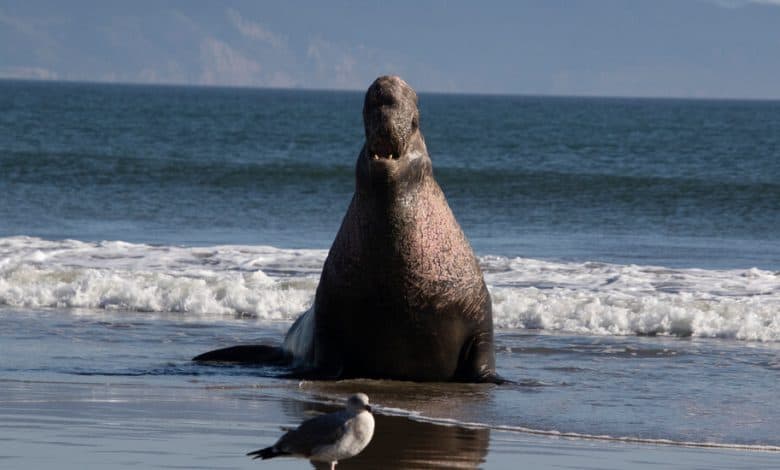A Two-Ton Lifeguard That Saved a Young Pup

Male elephant seals are not known for their paternal instincts. While splayed out on the beach during the breeding season, these far-from-gentle giants focus on mating with females and fighting other males. As they hustle their two tons of bulk around the colony in pursuit of these goals, “they’ll run over pups” without hesitation, crushing even their own offspring, said Daniel Costa, an ecologist at the University of California, Santa Cruz.
Which made the events of Jan. 27, 2022, all the more striking. Sarah Allen and Matthew Lau, wildlife biologists at the National Park Service, were surveying the northern elephant seal population at Point Reyes National Seashore, about 30 miles northwest of San Francisco. As they walked past a colony lounging on the beach, they noticed a young pup resting with an adult female close to the water.
“It was a warm day,” Dr. Allen recalled, so she figured the two were cooling off on the wet sand.
When Dr. Allen and Mr. Lau passed the colony again on their way back, the situation had changed. The rising tide had pulled the pup out to sea and, too young to swim, it was struggling to stay afloat. The female was still on the beach, answering the pup’s plaintive cries with calls of her own, which attracted the attention of a nearby male.
“We thought, Oh, he’s going to try and mate with her,” Dr. Allen said.
Instead, he gave the female a sniff and then “charged out into the surf,” she added. When he reached the pup, he used his body to gently nudge it back to the beach — probably saving its life.




Top left, the female called for her pup, which was having a hard time reaching land; top right, the male swam toward the pup; bottom left, the male pushed the pup to shore and blocked it from floating back out to sea; bottom right, the female bellowed after being reunited with her pup.Credit…Matthew Lau
Dr. Allen has observed elephant seals for more than 40 years and had never seen anything like this before. “I contacted a bunch of colleagues asking if they’d seen anything like this, and nobody had,” she said. Dr. Costa agreed: “It’s completely out of the ordinary.”
We are having trouble retrieving the article content.
Please enable JavaScript in your browser settings.
Thank you for your patience while we verify access. If you are in Reader mode please exit and log into your Times account, or subscribe for all of The Times.
Thank you for your patience while we verify access.
Already a subscriber? Log in.
Want all of The Times? Subscribe.